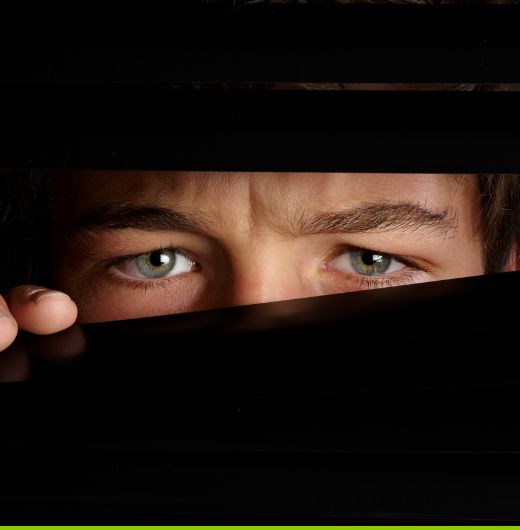Disability insurers increasingly monitor publicly available social media content—like posts, photos, and check‑ins—to identify inconsistencies between a claimant’s reported limitations and their online activity, often to justify denying or terminating benefits. While surveillance may uncover potential fraud on limited occasions, it raises significant privacy concerns and can unfairly penalize individuals who share everyday moments that don’t reflect their broader health challenges.
Is your disability insurance company watching your social media? We really don’t know … but we can say that if you’ve sued them for compensation, there’s a good chance that they might tune in to your social media once in a while.
Social media is prevalent in our daily lives. Apps like Facebook, TikTok, Instagram and Twitter have changed how people communicate individually as well as professionally.
Social media for businesses, organizations and brands helps to create news, make connections and followers, accomplish business objectives, increase sales, provide a communication platform between companies and customers, and advertise to attract users or customers.
From a social perspective, social media sites provide entertaining video platforms and allow people to connect with friends, family and colleagues.
TABLE OF CONTENTS
ToggleWhat is social media surveillance?
Social media surveillance is a digital investigative tool commonly used by long-term disability insurance companies to monitor claimants’ online activities. The primary goal is to identify potential inconsistencies between an individual’s reported limitations and their public social media presence—often as a basis to deny or terminate long-term disability benefits.
Insurers routinely scan platforms such as Facebook, Instagram, TikTok, and X (formerly Twitter), reviewing publicly available content without the need for a court order or claimant consent. Photos, videos, status updates, check-ins, and tagged content can all be collected and analyzed. Even seemingly innocent posts—such as attending a family gathering, gardening, or traveling—can be misconstrued to suggest higher levels of functioning than what a claimant reports.


Many individuals are unaware that their online posts may be used against them in the claims process. Sharing personal milestones, physical activities, or location data can unintentionally provide insurers with ammunition to challenge the legitimacy of a disability claim. For example, if a claimant states they are unable to walk for extended periods but posts photos hiking or dancing at a wedding, the insurer may allege misrepresentation or exaggeration.
Although insurers justify social media surveillance as a necessary measure to detect fraud, the practice raises serious concerns about privacy and fairness. It blurs the line between legitimate oversight and intrusive digital monitoring. Claimants should remain mindful that once content is posted publicly, it can—and often will—be scrutinized in the context of their disability claim.
How Do Insurance Companies Monitor Social Media?
The goal of social media surveillance is to discredit you—to prove you’re not disabled enough for benefits.
Short term disability investigations use low-cost, high-yield methods: monitoring friends’ and family members’ profiles, setting Google Alerts for your name, and combing your interactions. Often, they form false narratives based on partial truths.
Most social media users are careless with privacy settings, which lets investigators access information through friends’ profiles, not just yours.
Insurance companies may review:
-
Your profile pictures
-
Status updates
-
Photos and videos
-
Locations in photos
-
Who is with you
-
Hobbies
-
Relationship status
-
Comments
-
Interactions
-
Likes
-
Familiar faces to befriend and monitor
Social Media Surveillance in Disability Claims
In today’s digital age, disability insurers increasingly turn to social media as a tool to investigate and evaluate the legitimacy of claims. What many claimants don’t realize is that content shared online—photos, videos, comments, and location check-ins—can be used as evidence to challenge their eligibility for benefits. Whether intended or not, your digital footprint may be monitored and interpreted through the lens of suspicion.
Social Media as Evidence
Insurance companies carefully review social media posts for any signs that may contradict a claimant’s reported medical limitations. A single photo showing someone lifting a child, attending an event, or engaging in light physical activity can be used to suggest that the individual is more capable than they claim. Even passive posts—such as travel plans, celebrations, or updates about hobbies—can raise red flags.
While these posts may reflect rare or exceptional moments, insurers may use them to paint an inaccurate picture of a claimant’s daily life. The result can be devastating: denial, suspension, or termination of benefits based on misinterpreted evidence pulled from social media. For this reason, individuals pursuing or receiving disability benefits should be extremely cautious about what they share online and consider tightening their privacy settings.
The Role of Privacy Settings
Adjusting your social media privacy settings is a crucial step in protecting your personal information, especially if you are pursuing or receiving disability benefits. Making your profile private can limit what insurers—and the general public—can see. However, it does not guarantee complete protection.
Even with strict privacy settings, insurance companies may still access content through publicly visible posts, tagged photos, shared content, or the profiles of friends and family. For example, if a friend tags you in a photo or mentions you in a public post, that information may be available to insurers conducting surveillance. In some cases, investigators may even create fake profiles to gain access to private information—though this may raise ethical and legal concerns.
While privacy settings offer a layer of defense, claimants should assume that anything posted online has the potential to be discovered and used in the evaluation of their disability claim. The safest approach is to avoid posting any content that could be misinterpreted or taken out of context.
Why do Long-Term Disability Insurance Companies Conduct Surveillance?
When you file a long-term disability (LTD) claim, your insurer begins an investigation to assess whether your reported symptoms and limitations align with the available evidence. Surveillance—including reviewing social media content—is one of the tools insurers use to verify or challenge the legitimacy of a claim. Unfortunately, this practice is often used not just to uncover fraud, but to find any reason—however minor or misleading—to deny or terminate benefits.
Social media posts, even those taken out of context, can be collected and stored as evidence to contradict your stated impairments. A smiling photo at a birthday party, a casual outing with friends, or a shared memory from years ago may all be interpreted in ways that cast doubt on your claim, regardless of whether they accurately reflect your daily health or abilities.
Insurers typically resort to surveillance when certain red flags appear in your file, including:
-
Gaps in communication – Delays in returning calls or completing paperwork may be perceived as evasiveness.
-
Doubt about physical or mental functionality – Reports from healthcare providers may conflict with the severity of limitations you’ve described.
-
Inconsistent or vague responses – If your descriptions of symptoms vary across forms, interviews, or assessments, insurers may grow suspicious.
-
Missing or incomplete documentation – Lack of updated medical records or assessments may lead to heightened scrutiny.
-
Suspicion of undisclosed income – Insurers may monitor for signs of under the table or undeclared employment.
-
Credibility concerns – Any sign that your behavior appears inconsistent with your claim may trigger further investigation.
-
Personal bias by an adjuster – In some cases, an adjuster may form subjective impressions that influence the decision to conduct surveillance.
-
Random file reviews – Internal audits may flag a claim simply due to algorithmic screening or internal policy reviews.
While insurers have a legal right to investigate claims, surveillance can quickly become invasive and adversarial. Claimants should be aware of how everyday actions—particularly online—can be misinterpreted and weaponized during the disability claims process.
How Often Does Disability Spy on You?
Surveillance may occur:
-
At the start of a claim
-
Before discoveries, mediation, pre-trial, or trial
Disability insurance investigators may use social media to disprove that your disability is as severe as you claim.
Social Media Surveillance – What Insurance Companies Look For
Insurance companies conducting surveillance on long-term disability claimants often turn to social media in search of evidence that appears to contradict the limitations described in a claim. Their goal is simple: to find content—photos, videos, comments, or check-ins—that they can use to argue that your disability is not as severe as reported.
Investigators are trained to look for any online activity that could raise doubt about your physical, mental, or emotional limitations. This includes images of you traveling, exercising, attending social events, or engaging in hobbies that suggest a higher level of function than what you’ve disclosed in your claim or to your doctors. Even posts showing you smiling or enjoying a moment with family may be taken out of context and used to undermine your credibility.
Insurance companies often rely on these digital footprints to suggest that a claimant is exaggerating, misrepresenting their condition, or is capable of returning to work. Unfortunately, these assumptions are often made without understanding the reality of chronic illness, invisible disabilities, or the fluctuation of symptoms over time.
It’s important to remember that insurers are not only reviewing what you post, but also what others post about you. Tagged photos, public comments, and location-based check-ins can all be collected and used to build a case against your claim. In some cases, insurers will even compare your statements in medical forms with your online activity to identify what they see as inconsistencies.
While surveillance is often framed as a fraud prevention tool, it is frequently used to cast doubt and justify benefit denial. For that reason, disability claimants should be extremely cautious about their social media activity and consider that anything posted publicly could be misinterpreted.
Protect Yourself
Be cautious with what you post. Review privacy settings. Consider not sharing posts that could be taken out of context.
Consult a legal expert if you suspect surveillance. Understand your rights.
Social Media Can Send the Wrong Message About Your Disability
People share the best parts of their lives online. This can backfire.
Examples:
-
An engineer with cognitive limitations forgets to delete his LinkedIn profile; it’s used against him.
-
Someone with mental health issues posts a wedding photo; it’s used to argue they’re not impaired.
-
A rheumatoid arthritis patient shares a painting photo; it’s misinterpreted as proof of ability.
-
A cancer patient posts family time; it’s used to show they’re emotionally and physically fine.
-
A person with depression is seen having coffee; it’s used as evidence they’re functioning well.
-
A chronic pain survivor attends one birthday party; a single photo is used to deny benefits.
Even if content doesn’t reflect reality, investigators can twist it to fit their agenda. This is frustrating, but a disability lawyer can help you respond strategically.
Don’t Stop Living Your Life, But Know What Insurance Companies Can Use
Filing a long-term disability claim should not mean putting your life on hold—but it does mean you need to be aware of how your actions, particularly online, can be perceived by your insurer. Insurance companies are constantly on the lookout for any content—photos, videos, comments, check-ins—that they can use to question the credibility of your claim. Their aim isn’t always to understand your condition in context—it’s often to find a reason to deny or terminate your benefits.
A single image of you smiling at a wedding, walking your dog, or attending a social gathering can be framed as evidence that you are more capable than you claim to be. Even if those moments were brief and followed by days of pain or exhaustion, insurers are unlikely to see—or acknowledge—the aftermath. They will focus on what they can capture and interpret, even if that narrative is incomplete or misleading.
It’s not just your posts that are scrutinized. Content shared by friends or family members, including tagged photos or public mentions, can also become part of an insurer’s surveillance file. Your presence in someone else’s post—no matter how incidental—may be used to suggest that your disability isn’t as limiting as you’ve reported.
The key is not to isolate yourself or stop engaging in meaningful moments, but to be mindful of what is shared online and who can see it. Understanding how insurers collect and interpret social media content empowers you to make informed choices and protect your claim.
Living your life shouldn’t cost you your benefits—but knowing how insurance companies operate can help ensure they don’t misrepresent it.
Have You Been Denied LTD After Social Media Surveillance?
Living with a disability doesn’t mean you have to disappear from the world—but it does mean you need to protect yourself. Insurance companies are not looking for context; they’re looking for contradiction. A single post, photo, or comment may be misinterpreted and used to question your credibility.
If you’re unsure how your online presence may affect your disability claim, or if your benefits have been denied or terminated based on social media surveillance, we can help.
Lalande Personal Injury Lawyers have recovered millions in denied disability benefits. We understand insurance company tactics and how social media surveillance is used. If you’ve been denied benefits or are unsure what to do next, contact Lalande Personal Injury Lawyers at 905-333-8888 or fill in a confidential contact form today. Our experienced disability lawyers understand how insurers operate—and we know how to fight back when they overstep. Let’s make sure your story is told truthfully and fairly.
Article FAQ
Yes, insurers can legally view and collect any content that is publicly available on social media platforms such as Facebook, Instagram, and X (formerly Twitter). They do not need a court order or your consent to review publicly posted information.
If your long-term disability benefits were denied or terminated based on social media evidence, contact an experienced disability lawyer immediately. We can help you challenge the insurer’s decision and ensure your condition is represented accurately and fairly.
If an insurer believes your online activity contradicts your reported symptoms or limitations, they may use that as justification to deny or terminate your benefits—even if the content is misleading or taken out of context.
Insurers may use photos, videos, comments, location tags, or activity check-ins to argue that your daily function is inconsistent with your reported disability. Even content posted by friends or family—if you’re tagged—can be used as part of their surveillance.


